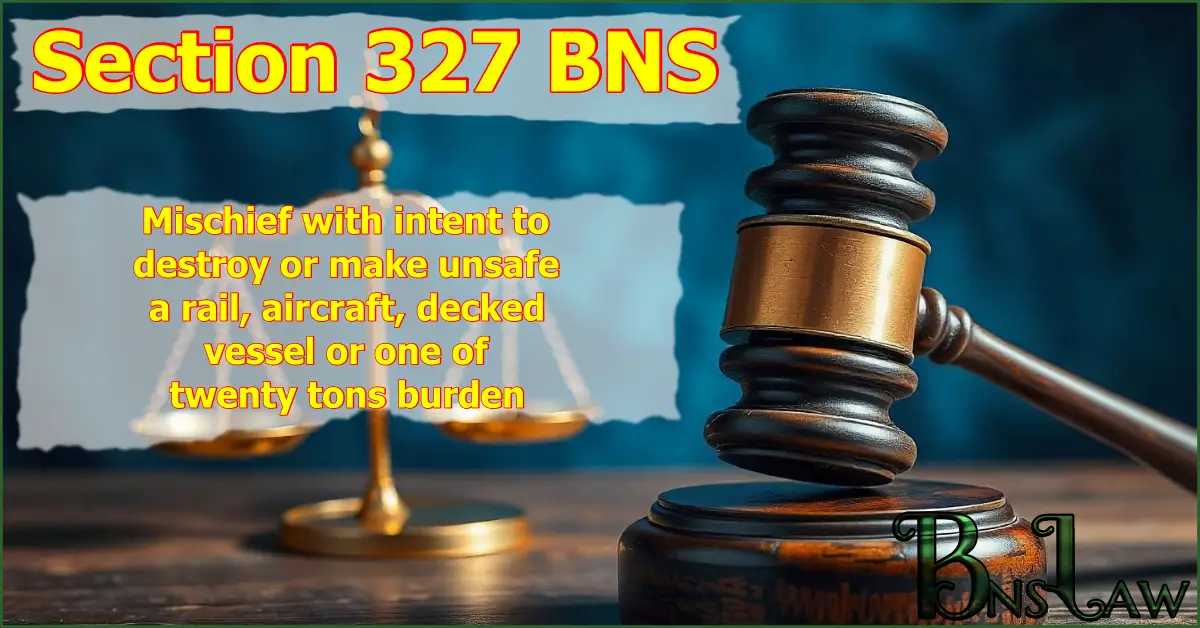Section 327 BNS | BNS 327
327(1) BNS
Whoever commits mischief to any rail, aircraft, or a decked vessel or any vessel of a burden of twenty tons or upwards, intending to destroy or render unsafe, or knowing it to be likely that he will thereby destroy or render unsafe, that rail, aircraft or vessel, shall be punished with imprisonment of either description for a term which may extend to ten years, and shall also be liable to fine.
327(2) BNS
Whoever commits, or attempts to commit, by fire or any explosive substance, such mischief as is described in sub-section (1), shall be punished with imprisonment for life or with imprisonment of either description for a term which may extend to ten years, and shall also be liable to fine.
READ OTHER SECTIONS OF CHAPTER XVII — OF OFFENCES AGAINST PROPERTY
FAQs of BNS Section 327
-
327 BNS punishment and fine
Punishment and fine under Section 327 of the BNS—
327(1): Imprisonment for 10 years and fine.
327(2): Imprisonment for life, or imprisonment for 10 years and fine. -
327 BNS cognizable or not
The offence under Section 327(1) and 327(2) of the BNS is cognizable.
-
327 BNS bailable or not
The offence under Section 327(1) and 327(2) of the BNS is non-bailable.
-
327 BNS trial court
Offence specified in Section 327(1) and 327(2) of the BNS is triable by the Court of Session.
Important Points
- Cognizable Offences: These are offences where a police officer can arrest a person without a warrant.
- Non-Cognizable Offences: These are offences where a police officer cannot arrest a person without a warrant.
- Bailable Offences: These are offences where the accused can get bail from the police station itself. All bailable offences are listed in the First Schedule of the Bharatiya Nagarik Suraksha Sanhita (BNSS).
- Non-Bailable Offences: Offences in which bail is not granted directly from the police station but after hearing the case in the court, the judge decides when bail will be granted. All non-bailable offences are listed in the first schedule of the Bharatiya Nagarik Suraksha Sanhita (BNSS).
- In the above FAQ, “trial court” means the court that has jurisdiction to try the offence.
- In the above FAQ, the expression “Magistrate of the first class” and “Any Magistrate” does not include Executive Magistrates.
Read other Sections of the BNS
Reference Link: New Criminal Laws (BNS), Ministry of Home Affairs







